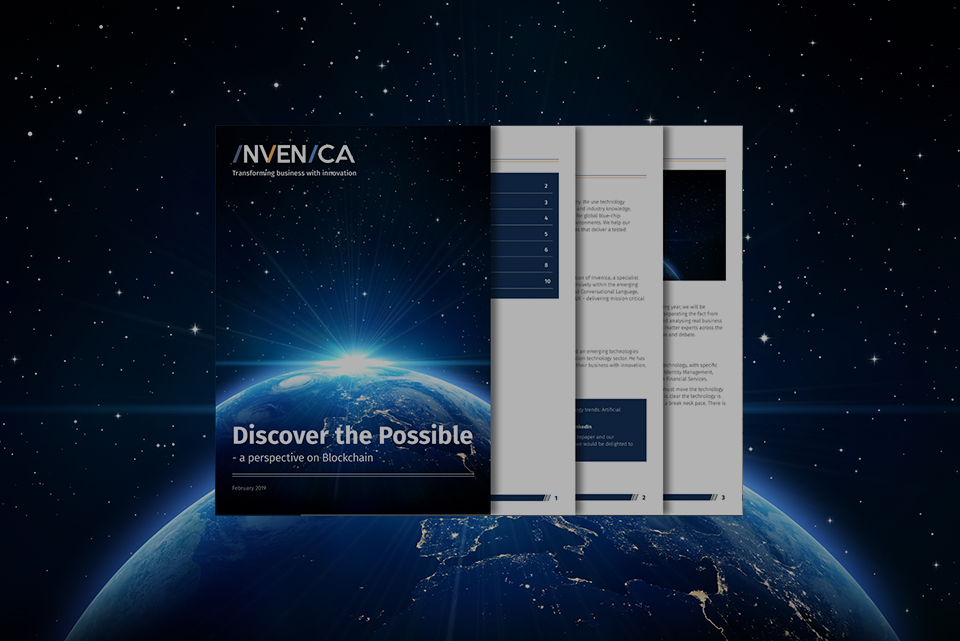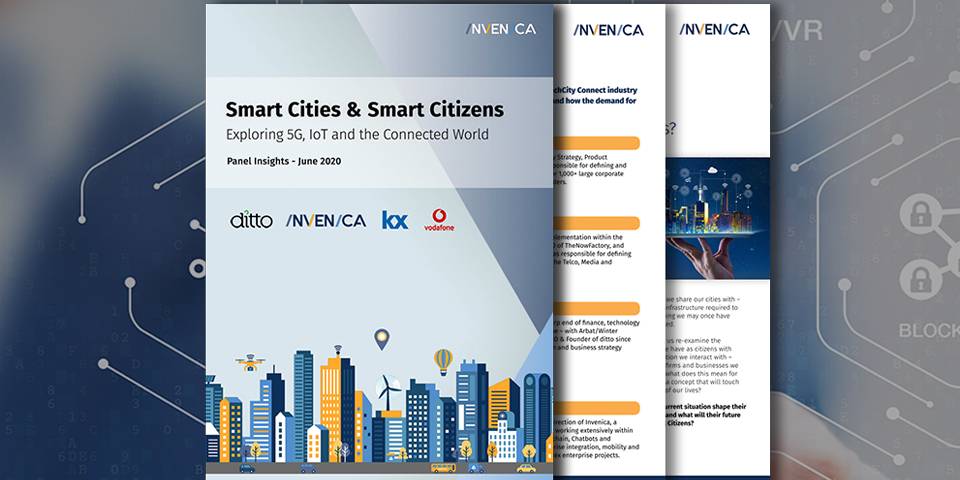Welcome to our Discover the Possible Whitepaper exploring the possibilities of Blockchain
This is our first paper in the series and focuses on the potential of Blockchain technology, with specific case studies across Retail, Manufacturing and Finance. We review innovation in Identity Management, Asset and Provenance Tracking, and also examine the adoption of Blockchain in Financial Services. There is no denying that Blockchain comes with a degree of scepticism – firms must move the technology from the ‘theoretical’ to the ‘critical’ – and demonstrate a clear ROI. However, it is clear the technology is exciting, has captured the imagination, and is fuelling thinking and creativity at a break neck pace. There is a strong sense that we are at inflection point.
Blockchain technology has tremendous potential to be the revolutionary mechanism for business, that the internet was for media
Conceptualised in 2008 by Satoshi Nakamoto, the technology became the record-keeping technology behind bitcoin. It is a list of records, connected using cryptography, that provide an open, decentralised database of any transaction involving value or personal data. Decentralisation means that copies of the ledger are stored in many different locations and distributed across peer-to-peer networks, significantly reducing the risk of tampering or corruption.
Blockchain has the potential to disrupt a wide range of industries, revolutionising the management of data, and building immutable trust between businesses and consumers. Preparing for the undoubted change that comes with Blockchain adoption means investing in research and experimentation. The businesses who recognise this will be best placed to thrive in a new, innovative landscape.

Learn more about innovation in Identity Management, Asset and Provenance Tracking using Blockchain.
"By adopting Blockchain technology, Banks can significantly improve their onboarding process, streamline operations and develop a secure, trusted KYC solution."
BarclayCard, 2018
"84% of executives view Blockchain technology as broadly scalable and will eventually achieve mainstream adoption."
Deloitte study, 2018
Blockchain FAQs
What is the technology and why is it valuable?
Blockchain technology offers transformative improvements for identity management. A central characteristic of Blockchain technology is its distributed, decentralised structure – obviating the need for third-party management. Blockchain is powering a personal data revolution. Relying on physical identity documents in an ever-growing digital age is outdated, cumbersome and expensive, but also increases the risk of fraud, hacking and spoofing. Events relating to the use of customer data for identification purposes can be stored on the Blockchain.
What does it mean for the user?
With so much of our life and commerce on-line the current methods of handling identity, usernames, passwords, authentication and user verification is error prone. Blockchain technology has established a new paradigm for handling digital identities – self-managed identity. Self-managed identity allows customers to create and manage their own identity, removing the need for a central repository. This new, digital concept using decentralisation and public key cryptography to give individuals control over their data. When implemented correctly, it can provide flexibility, scalability, security and consensual interactions. For the customer, this means they can transact in a frictionless, trusted, yet private manner. Identity management can also offer increased data privacy, identity is held on the user’s devices and is shared directly with products and services when required.
Our “Discover the Possible” series explores the challenges and opportunities of across the emerging technology landscape. “Discover the Possible” separates the fact from the fiction, translating the buzz words and jargon into simple plain language, and analysing real business use cases. The Invenica team collaborate with clients, partners and subject matter experts to produce White Papers, Webinars and Industry Articles to spark discussion and debate across the markets.



